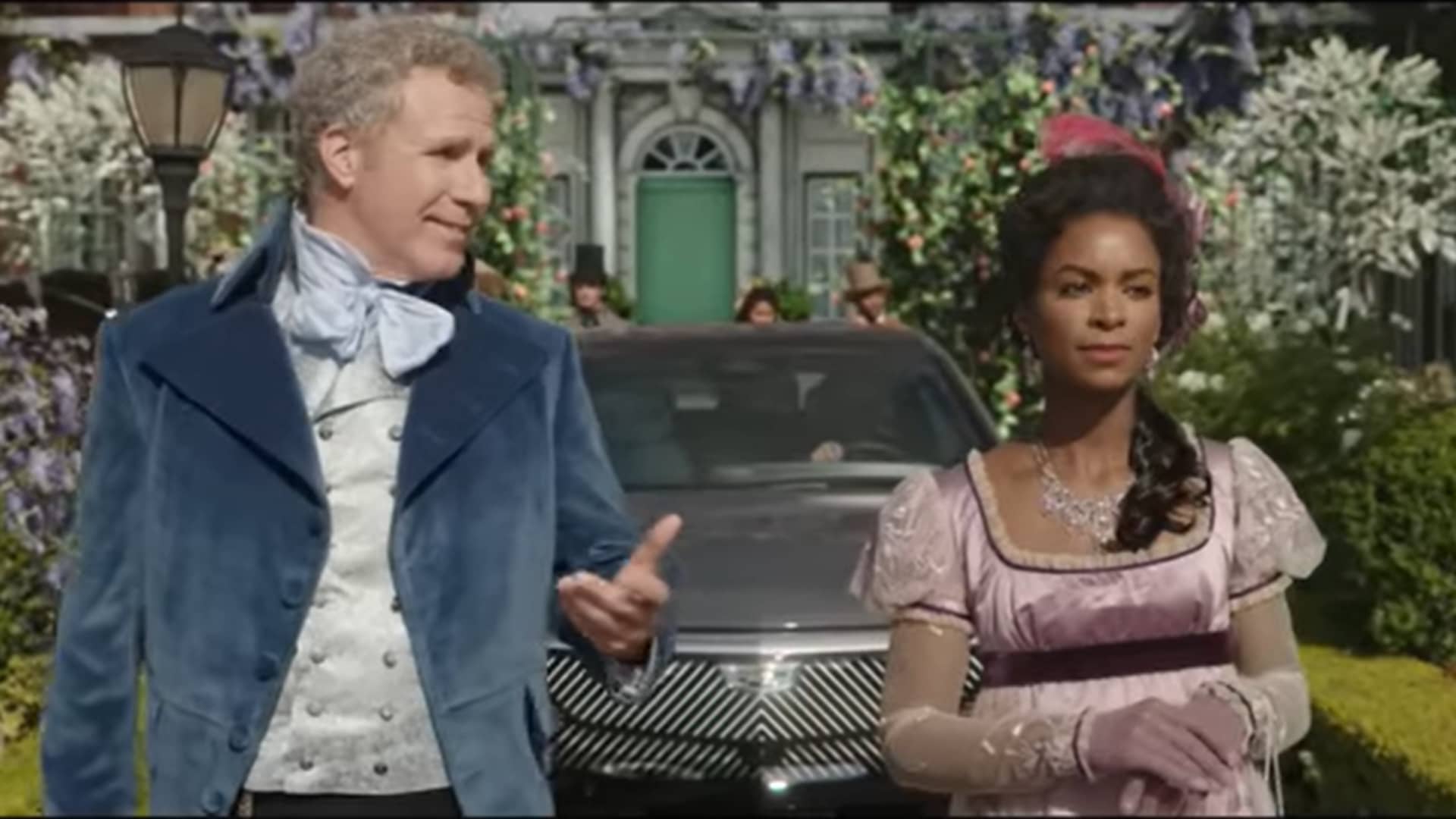Products You May Like
Automakers — historically among the largest Super Bowl advertisers — are mostly bypassing this Sunday’s NFL championship game to preserve cash or spend ad dollars elsewhere.
The only automakers expected to advertise during Sunday’s game between the Philadelphia Eagles and Kansas City Chiefs on Fox are General Motors, Kia and Stellantis‘ Ram and Jeep brands. Porsche said it will air a spot shortly before the game in collaboration with Paramount.
The broad resistance is a swift change from a year ago, when the automotive industry represented the largest segment for Super Bowl ads, at $99.3 million, according to Kantar Media’s Vivvix. That total was up by more than $30 million from 2021 when web-based, media and movie companies outspent the industry.
The decline in automotive ads this year comes as companies invest billions of dollars in electric vehicles or attempt to preserve cash in preparation for a potential economic downturn. They also are continuing to battle through supply chain problems.
The average cost of a 30-second commercial during last year’s Super Bowl was $6.5 million, up more than $2 million over 2016 rates. That cost is now approaching $7 million, according to Kantar Media.
“This has less to do with the Super Bowl itself and more to do with individual issues within the automotive industry,” Eric Haggstrom, director of business intelligence for Advertiser Perceptions, told CNBC. “The auto industry has been battered by supply chain issues, inflation eating into consumer budgets, and rising interest rates that have made car payments dramatically more expensive.”
Haggstrom noted several automakers pulled back ad spending in recent years — the result of fewer products to sell due to tight inventories caused by supply chain problems during the coronavirus pandemic. Newer automakers have also traditionally advertised less, or not at all, as they attempt to emulate Tesla’s advertising-free model, Haggstrom said.
Eight auto brands or companies advertised during last year’s Super Bowl, including returning companies GM and Kia. Embattled car retailers Carvana and Vroom, which advertised during last year’s game amid record used vehicle demand, are not returning. And EV startup Polestar, whose ad was a success in the 2022 Super Bowl, said it will also not advertise this year.
For the 10th consecutive year, auto accessory company WeatherTech will air a 30-second ad. The Illinois-based company is the longest-running automotive business to consecutively advertise during the big game.
Those who are advertising say they are taking the opportunity to reach a captive audience that’s expected to be around 100 million viewers. The game is historically one of the most-watched events of the year, offering advertisers an opportunity to capitalize on viewership amid declining television audiences.
GM’s 60-second ad stars actor and comedian Will Ferrell driving GM EVs through popular Netflix shows and movies to promote the streaming service upcoming efforts to include more EVs in its productions.
“It is a big moment,” GM marketing chief Deborah Wahl told reporters during a briefing about its ad. “To do something like this is really different.”
Ferrell also appeared in GM’s Super Bowl ad promoting EVs two years ago.
Those who aren’t returning largely attributed the decision to business priorities or available products and capital. Toyota Motor, one of the top Super Bowl advertisers in recent years, said its product plans didn’t align with this year’s game.
“We look at the Super Bowl very strategically, and we want to make sure that we have a purpose for being in the Super Bowl,” Lisa Materazzo, group vice president of Toyota Marketing, told CNBC at an event this week for the Chicago Auto Show. “We definitely think the Super Bowl has a place. This year it just wasn’t the right time or place for us.”
Hyundai Motor, in an emailed statement, said the decision not to advertise was “based on business priorities and where we felt it was best to allocate our marketing resources.” Audi, which last advertised in 2020, said it’s “focusing on other efforts within our electrification and sustainability commitments.”
Stellantis, formerly known as Fiat Chrysler, has been one of the most prolific advertisers for more than a decade and is returning after a one-year hiatus. The company’s chief marketing officer, Olivier Francois, is well known for attracting standout talent including Bruce Springsteen, Bill Murray, Clint Eastwood and Eminem.
Stellantis has not released its ads, while GM, Kia and WeatherTech released their commercials earlier this week.
Kia’s 60-second “Binky Dad” ad features a father going viral for racing to retrieve a “binky” for his baby, driving a 2023 Telluride X-Pro SUV. It’s set to “Gonna Fly Now” of 1976, famously known as the “Rocky” movie theme music. Uniquely, the commercial features three alternate endings that will be available exclusively on TikTok.
The ad has drawn some criticism online, as Kia and its parent company Hyundai have come under fire for at least four of its suppliers reportedly violating child labor laws. Both Hyundai and Kia have condemned such practices. Reuters this week reported the parent company is in talks with the U.S. Department of Labor to resolve concerns about child workers in its U.S. supply chain.
The 30-second ad for WeatherTech promotes the company’s U.S.-made products, showing bank executives and others criticizing the company for its American investments and production.
The ad for Porsche is a collaboration with Paramount for this summer’s “Transformers: Rise of the Beasts” film. It is the second year for such a tie-up following a commercial last year for “Top Gun: Maverick.”
Haggstrom said there’s been a general “cautiousness” in the auto industry around advertising.
“They’re really looking at what is the value of advertising today? How does that affect my top line, how does that affect my go-to-market,” he said. “We’ve seen a general trend in accountability in consumer advertising.”
– CNBC’s John Rosevear contributed to this report.
